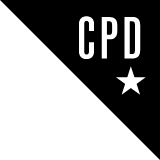It’s good to talk
When a crisis erupts, proper communication can be a leader's greatest strength. Ali Catterall reports.
We are living through a series of perfect storms: from the after-effects of the pandemic to the cost of living, credit crunch and the war in Europe. To paraphrase: as one door closes… another window slams shut. If we ever craved to be witnesses to Big History, well, we never asked for this.
Yet even given this utterly unreasonable state of affairs, there will, admittedly, always be some kind of crisis or another. The important thing is to know how to deal with them. Today, more than ever, PR professionals have a central role to play here. And funnily enough, it's through communication.
Managing crisis through effective comms is a subject James Burstall knows something about. A former reporter and producer for the likes of Def II, and one of the five founding producers of the Big Breakfast, today he's CEO of Argonon, one of the UK's most successful TV production companies, with offices in London, Los Angeles, New York, Glasgow, Liverpool and Oklahoma. When the pandemic struck in 2020, his was among those industries hit hard.
"It was really brutal," he recalls today. "Our whole industry was shut down. It was as if we'd been in a giant shipwreck and all our people had been cast into the water. But we were going to try and take everybody to the shore. And to freelancers, we said, ‘We will get you back, we're going to do everything we can to get back into production.' And we did. We kept our promise. We brought them all back."

James Burstall
The power of the pivot
Halting work was not an option. "In the entertainment business and production, in particular, we're used to being very flexible in our thinking," he says. "We pivot on the spot." And although the networks doubted they could do it, Argonon, the company behind such hits as The Masked Singer UK and the Worzel Gummidge reboot, did indeed hit their budgets, deadlines and schedules.
In his new book, The Flexible Method: Prepare to Prosper In The Next Global Crisis, James offers 16 lessons in crisis management, gleaned from such hard-won, real-world experiences. "If you are brave, and if you face up with your team to some difficult decisions and difficult processes, I'm absolutely convinced you will come out fitter and stronger," he says.
"Communication may well be your most important skill as a leader"
Flexible Method strategies include working out your comms strategy and acting on it; empathy; demonstrating vulnerability and transparency; and changing your communications as a crisis evolves. And indeed, one of the most important chapters deals with the importance of communication. As James writes, "Communication plays a big role for leaders at all stages of a crisis." In fact, "Communication may well be your most important skill as a leader."
During a crisis, he writes, people have a heightened need for good, honest communication. Such communications should focus on giving people the necessary information while encouraging them to remain calm and stay safe. James decided to write a daily email "to be a voice in the darkness, but also to offer people very authentic ‘from the heart' communication. Which was to say, our management team do not have all the answers, and the government doesn't have all the answers. But we've got lots of combined experience between us. And we will find a way through this, so hang in there."
The approach elicited lots of replies, "particularly from junior members of staff who'd say, ‘Gosh, it's so nice just to hear that someone cares about us.' And that really was the beginning of this very important message that you must put your people first. That was built into our DNA anyway, but that really emphasised it. I was very moved by some of the emails I received."
Simple and clear messaging in times of crises
Frequent communication can help reduce fear and uncertainty, he says, but in such stressful times, such messaging should be simple and clear. It's also important to remind people of past successes and to frame messages positively. Repetition and reinforcement of key messages are crucial, while demonstrating vulnerability and transparency also help build trust.
Striking the right balance wasn't always easy: "A few weeks in, we had news that one of our people had somebody in hospital, who then went on to die. And we also won a major commission on the same day. So while it's very important to celebrate every win, however small, I also knew that one of my colleagues was in extreme pain. How on earth do you write that email? I said that, on the one hand, we've got some good news and people should be feeling positive about it. And on the other hand, let's not forget there are those among us who are suffering, and we must think about them too and reach out. Getting that balance was difficult, but it did come from the heart. I also knew I had to rekindle optimism - that was critical. That even in those dark days, there was still hope."
And James kept people motivated. "Be sure to praise colleagues who have shown particular dedication or achieved outstanding results," he writes. If he couldn't always afford to reward his team with extra money, "across the organisation when people did extraordinary things, we sent them a box of chocolates or flowers, or got somebody a massage, because we knew they were stressed out. Small stuff. But those things do matter. And it made people feel valued."
Regular feedback channels and meetings are also vital at this time, as is sharing "uplifting moments about how your people are adapting to new ways of working… foster a sense of hope and optimism to supercharge creativity and plan for the future".
"One thing is certain," says James. "There will always be change, and there will always be crises. So we need to be ready."
The Flexible Method: Prepare to Prosper in the Next Global Crisis is out now.
.jpg&w=728&h=90&maxW=&maxH=&zc=1)

